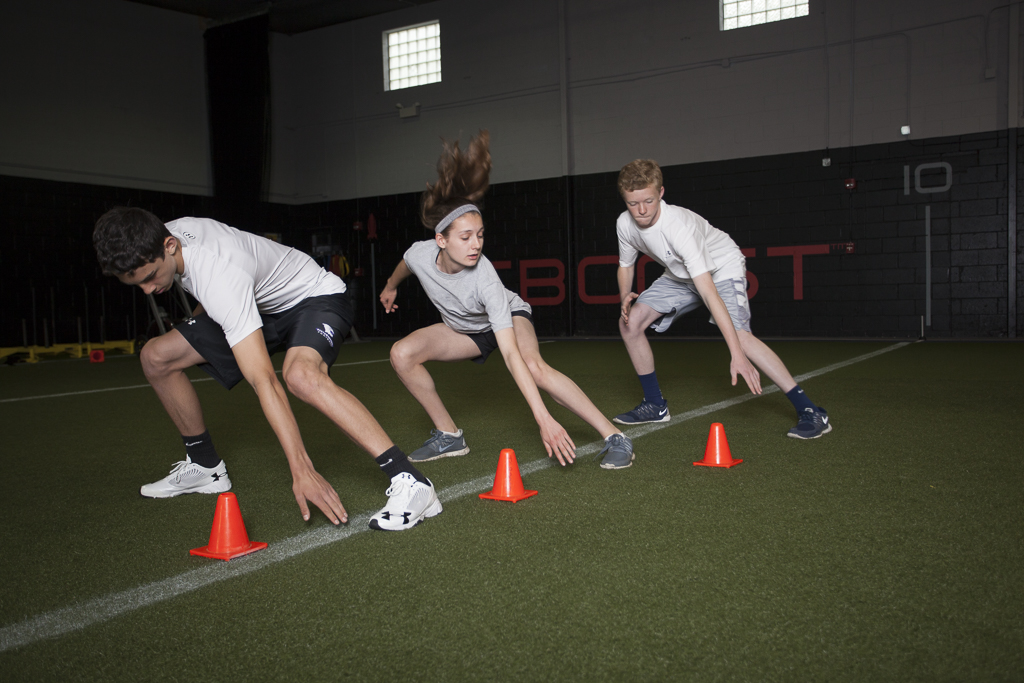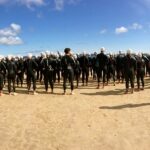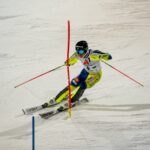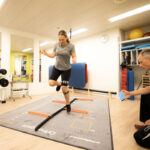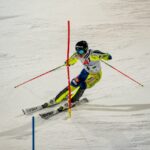Every sports season comes to an end whether you want it to or not. After a long and demanding season, if you’re like most athletes, you’re probably tired of your sport (regardless of whether the season was a triumph or a disappointment). You just want to hang up your gear, kick back, relax, and forget about being an athlete for a few months, right? WRONG!!!
Being the best athlete you can be is not a part-time activity. It requires a year-round commitment and consistent effort in your physical, technical, tactical, and, yes, mental training. If you’re a athlete serious about achieving your competitive goals, the end of the sports season simply means it’s time to start your preparations for next season. After a short period of rest and relaxation, say, a week or two, you need to begin your planning and your training that will get you ready to continue your progress toward your goals next season.
Post-season Evaluation
The first thing you want to do is to look back on your sports season and evaluate how you did. See below a post-season assessment you can take (and your coaches can take for you):
- Overall quality of season (1-10 scale; 1-awful, 10-exceptional):
- Physical progress (1-none, 10-significant):
- Technical progress (1-none, 10-significant):
- Tactical progress (1-none, 10-significant):
- Mental progress (1-none, 10-significant):
- Overall sports performance progress (1-none, 10-significant):
- Results progress (1-none, 10-significant):
- Goals achieved this season (1-none, 10-all):
- Goals for next season: List some outcome and process goals you want to accomplish next season that will keep you on the road toward your long-term dream goals.
- What strengths do you bring forward from this past season that will propel into next season?
- What weaknesses or areas of improvement have you identified that you need to work on?
- What has worked for you that you want to keep doing?
- What hasn’t worked that you want to discard?
- What can you add to your training (physical, technical/tactical/mental) that has been missing?
With this assessment completed, you can, in collaboration with your coaches, decide what in your training worked and what did not. You can then use this information to create a training program to build on your strengths and alleviate your weaknesses, so you will perform that much better next season.
Law of Insanity
You’re probably aware of Albert Einstein’s now-famous Law of Insanity: “…Doing the same thing over and over and expecting different results.” If you are violating his law in your sport, it’s time to stop and do something different. Whether physically, technically, tactically, or mentally, if what you’ve been doing isn’t working, you should change it. Take a look at your past season and all the things you did in the various aspects of your training, competing, and life, and determine what worked and what didn’t. In the latter case, stop doing anything that isn’t helping you achieve your goals.
Law of Stupidity
You are probably not aware of the far-less-famous law of stupidity, “If it’s working, change it; that’s just plain stupid,” because the guy who coined it isn’t famous (that would be me!). Despite the fact that this law hasn’t become a memorable one-liner (at least not yet), it has real relevance to your sports preparations. Just as you should adhere to the Law of Insanity and discard anything you’ve been doing that is clearly not working, you should also adhere to the law of stupidity and determine what has been unequivocally working and ensure that you continue to do them during your preparations and into your next season of competing.
It’s About Preparation
An awareness and appreciation of these two laws should be in the forefront of your mind as you plan your off-season training. How you perform next season depends on what you do between seasons. The physical conditioning gains you make and the technical, tactical, and mental skills you develop in the off-season will determine how much you improve and whether you reach your competitive goals next season. There are three areas in which you must focus to maximize your preparation.
First, Commit to an intensive physical conditioning program. Just about every sport these days require that you fully develop every aspect of your physical fitness including strength, agility, and mobility. The only way to develop these areas is with an organized conditioning program that may involve weight training, plyometrics, speed work, and stretching.
Second, most highly committed athletes spend at least part of the off-season continuing to practice their sport. This practice time is essential for your technical and tactical development because you’re able to focus exclusively on improvements in your fundamentals without the pressures of getting ready for competitions.
Finally, and just as importantly, the off-season is the best time to engage in mental training. Just like physical conditioning and technical skills, mental aspects of sport (e.g., confidence, intensity, and focus) take time and effort to develop. An organized program of mental training can have huge benefits when you enter the new sports season.
Get Going
Getting going for next season starts with that first step of deciding how important sport is to you. Here are some questions to ask yourself:
- How big are your sport goals for next season?
- Is your effort aligned with your goals?
- How badly do you want it?!?!
The key to achieving your goals next season is to start now! Talk is cheap. It’s easy to say you want to be a great athlete; it’s an entirely different thing to actually do the work necessary. If your goals are at all high, the only chance you will have is to commit to intensive off-season physical, sport, and mental training programs. Your goal when you enter the field of play in your first competition next season is to be able to say: “I’m as prepared as I can be to perform my best.” And, with all of that hard work in the off-season that you “deposited in the bank,” the chances are you will be successful and reach your goals.
Want to make mental training a part of your off-season training program? Take a look at my online mental training courses designed just for athletes.

